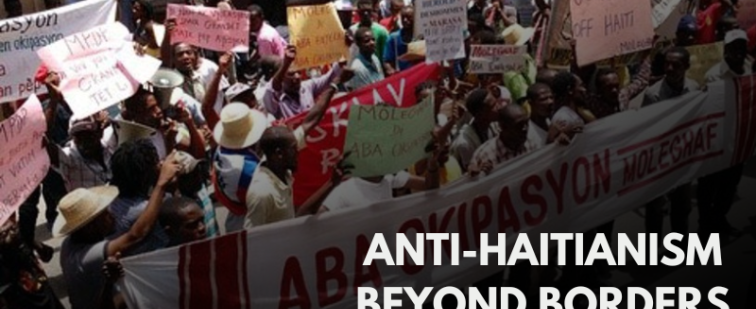Home
Venezuelan President Hugo Chávez has long been demonized by the Western media as a "leftist firebrand" (the U.K. Independent), "militaristic strongman" (Financial Times), and as "Venezuela's demagogue" (The Washington Post).
As gauged by old-fashioned- journalistic content analysis-which simply counts the number of words, headline size, and other plainly observable elements of newspaper copy-the Los Angeles Times' coverage of Prop. 187 was balanced. But such analysis is limited. According to recent research in cognitive science, common metaphor appears to be the key element of language that people use to make sense of their social world. In brief, what you say (or read) is what you get.
The powerful Ecuadorian indigenous movement faces one of its biggest challenges yet in the October 15th presidential elections – for the first time they are presenting their own candidate. For them it is not about winning, it is about continuing the indigenous struggle after a great crisis.
The national strike declared on August 29 against neoliberal policies by the Central Unitaria de Trabajadores (CUT), Chile’s main labor union, left more than 300 detained and hundreds injured throughout the country. And yet, only one of the protestors received a public apology from a chief of police: Socialist senator, Alejandro Navarro.
In the 1570s, a physician named Francisco Hernández led the first colonial scientific expedition to the New World. He traveled Mexico collecting plants that might prove valuable in curing European diseases. Since Hernández was clueless when it came to the properties of local plant species, he depended on knowledgeable indigenous healers who guided him to medicinal plants.
Indigenous forms of imparting justice in Guatemala have become a point of controversy between Mayan communities and the government. This article is the first of three in-depth reports by Lucía Escobar into Mayan community justice, its norms, its values, and its controversies.
On Monday August 20, a three-judge panel of the Eleventh Circuit Court of Appeals in Atlanta heard the case of the Cuban Five for the third time. In August 2005, a similar three-judge panel of the same court had unanimously overturned all of the Five's convictions and ordered a new trial. In 2006, after the direct intervention of U.S. Attorney General Alberto Gonzalez, the full panel of that Court reinstated the Five's convictions.
After barely averting a cut in funding by a six vote margin in Congress and becoming a focus of widespread criticism for its lack of transparency, the SOA/WHINSEC is once again making headlines due to crimes committed by its graduates.
Last Thursday, we lost a friend and comrade in the quest for social justice and solidarity in the Americas. After almost 25 years of operation, the Minneapolis-based Resource Center of the Americas was forced to close its doors despite years of reluctant and painful lay-offs and budget cuts. All of us at NACLA are heartbroken by the news.
On August 16, the Resource Center of the Americas announced that it was closing its doors "due to continuing and insurmountable financial challenges." The Resource Center, the Bookstore of the Americas and the cafe (operated by La Loma) all closed. The decision was reached at an emergency board meeting in the morning, and staff was notified at a special meeting immediately following the board meeting.












